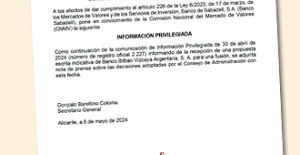Ozempic, Wegovy, Zepbound or Mounjaro: this new generation of promising drugs against obesity has for months aroused the enthusiasm of millions of patients and the pharmaceutical sector, in a sector which is cruelly lacking in effective molecules. These medications mimic a hormone secreted by the intestines, GLP-1 (short for glugaco-like peptide 1), which stimulates insulin secretion and curbs the appetite by providing a feeling of fullness. But a question arises: what happens when you stop taking them?
According to a study published in the Journal of the American Medical Association on Monday, a significant part of the weight lost would be regained when treatment was stopped. Which raises fears of inducing a form of long-term dependence. The experiment was carried out with tirzepatide, a molecule present in the drug Zepbound from the American laboratory Eli Lilly. This treatment was approved in November in the United States as a treatment for obesity, a disease from which around 40% of adults suffer in the country. The Zepbound is not currently sold in France.
In the study published Monday, a cohort of 670 patients (48 years old and 107 kg on average, 70% women) first took a dose of Zepbound as a weekly injection, causing them to lose an average of 21% of their weight after 36 weeks. They were then separated into two groups: one continued to receive Zepbound, the other a placebo. After 88 weeks (more than a year and a half), those who had received the placebo had regained almost half of the weight lost, with a weight still 10% lower than at the very start of treatment. The group that continued Zepbound continued to lose weight, with a body mass 25% lower than at the start. Even though all patients received advice to eat less and exercise, these results “highlight “evidence the need to continue treatment to prevent weight regain and ensure continued weight reduction,” which provides significant cardiac benefits, write the authors.
This publication shows, as four other clinical trials had already done, that with this new generation of drugs, “weight is regained significantly” in the event of stopping treatment, they summarize. “Patients, caregivers and the public do not always understand that obesity is a chronic disease that requires ongoing treatment,” said Jeff Emmick, an Eli Lilly laboratory manager, in a statement responding to the study. Eli Lilly sells Zepbound for $1,060 per month in the United States - a high price, rarely reimbursed by the country's health insurance plans.
This new generation of medications increases the risk of gastrointestinal problems. And even if they are rarely serious, these side effects could perhaps, according to experts, ultimately outweigh the benefits of the treatment if it must be administered over the long term.

 Finding yourself face to face with a man or a bear? The debate that shakes up social networks
Finding yourself face to face with a man or a bear? The debate that shakes up social networks Sabadell rejects the merger with BBVA and will fight to remain alone
Sabadell rejects the merger with BBVA and will fight to remain alone In Germany, the far left wants to cap the price of “doner kebabs”
In Germany, the far left wants to cap the price of “doner kebabs” Israel-Hamas war: Gaza between hope of truce and fear of Israeli offensive in the South
Israel-Hamas war: Gaza between hope of truce and fear of Israeli offensive in the South The presence of blood in the urine, a warning sign of bladder cancer
The presence of blood in the urine, a warning sign of bladder cancer A baby whose mother smoked during pregnancy will age more quickly
A baby whose mother smoked during pregnancy will age more quickly The euro zone economy grows in April at its best pace in almost a year but inflationary pressure increases
The euro zone economy grows in April at its best pace in almost a year but inflationary pressure increases Children born thanks to PMA do not have more cancers than others
Children born thanks to PMA do not have more cancers than others “The prices are astronomical”: to enjoy the Olympics with family, Sabrina spent... 8,000 euros
“The prices are astronomical”: to enjoy the Olympics with family, Sabrina spent... 8,000 euros “House of the Dragon”, “Succession”… Max, the new streaming platform from HBO and Discovery, launched in France on June 11
“House of the Dragon”, “Succession”… Max, the new streaming platform from HBO and Discovery, launched in France on June 11 The A13 motorway will finally reopen this Friday, in one direction only
The A13 motorway will finally reopen this Friday, in one direction only TNT commission of inquiry: tensions between LFI deputies and Macronists before the vote on the report
TNT commission of inquiry: tensions between LFI deputies and Macronists before the vote on the report The Coubertin Spirit, Eternal Memory, Planet of the Apes... Films to watch this week
The Coubertin Spirit, Eternal Memory, Planet of the Apes... Films to watch this week Rappers Drake and Kendrick Lamar vie for the spotlight
Rappers Drake and Kendrick Lamar vie for the spotlight In Istanbul, the ancient Byzantine church of Saint-Sauveur-in-Chora reopens for Muslim worship
In Istanbul, the ancient Byzantine church of Saint-Sauveur-in-Chora reopens for Muslim worship David Castello-Lopes: a fresh wind blows on the one-man show with his show Authentique
David Castello-Lopes: a fresh wind blows on the one-man show with his show Authentique Omoda 7, another Chinese car that could be manufactured in Spain
Omoda 7, another Chinese car that could be manufactured in Spain BYD chooses CA Auto Bank as financial partner in Spain
BYD chooses CA Auto Bank as financial partner in Spain Tesla and Baidu sign key agreement to boost development of autonomous driving
Tesla and Baidu sign key agreement to boost development of autonomous driving Skoda Kodiaq 2024: a 'beast' plug-in hybrid SUV
Skoda Kodiaq 2024: a 'beast' plug-in hybrid SUV The home mortgage firm rises 3.8% in February and the average interest moderates to 3.33%
The home mortgage firm rises 3.8% in February and the average interest moderates to 3.33% This is how housing prices have changed in Spain in the last decade
This is how housing prices have changed in Spain in the last decade The home mortgage firm drops 10% in January and interest soars to 3.46%
The home mortgage firm drops 10% in January and interest soars to 3.46% The jewel of the Rocío de Nagüeles urbanization: a dream villa in Marbella
The jewel of the Rocío de Nagüeles urbanization: a dream villa in Marbella Institutions: senators want to restore the accumulation of mandates and put an end to the automatic presence of ex-presidents on the Constitutional Council
Institutions: senators want to restore the accumulation of mandates and put an end to the automatic presence of ex-presidents on the Constitutional Council Europeans: David Lisnard expresses his “essential and vital” support for François-Xavier Bellamy
Europeans: David Lisnard expresses his “essential and vital” support for François-Xavier Bellamy Facing Jordan Bardella, the popularity match turns to Gabriel Attal’s advantage
Facing Jordan Bardella, the popularity match turns to Gabriel Attal’s advantage Europeans: a senior official on the National Rally list
Europeans: a senior official on the National Rally list These French cities that will boycott the World Cup in Qatar
These French cities that will boycott the World Cup in Qatar Ligue 1: at what time and on which channel to watch the Multiplex on Sunday?
Ligue 1: at what time and on which channel to watch the Multiplex on Sunday? PSG-Dortmund: Hummels’ (big) tackle to “teams who wanted to play against” BVB
PSG-Dortmund: Hummels’ (big) tackle to “teams who wanted to play against” BVB Top 14: Pierre Bochaton extends with UBB until 2027
Top 14: Pierre Bochaton extends with UBB until 2027 Tennis: Monfils beaten, Atmane surprises and advances to the 2nd round in Rome
Tennis: Monfils beaten, Atmane surprises and advances to the 2nd round in Rome


















